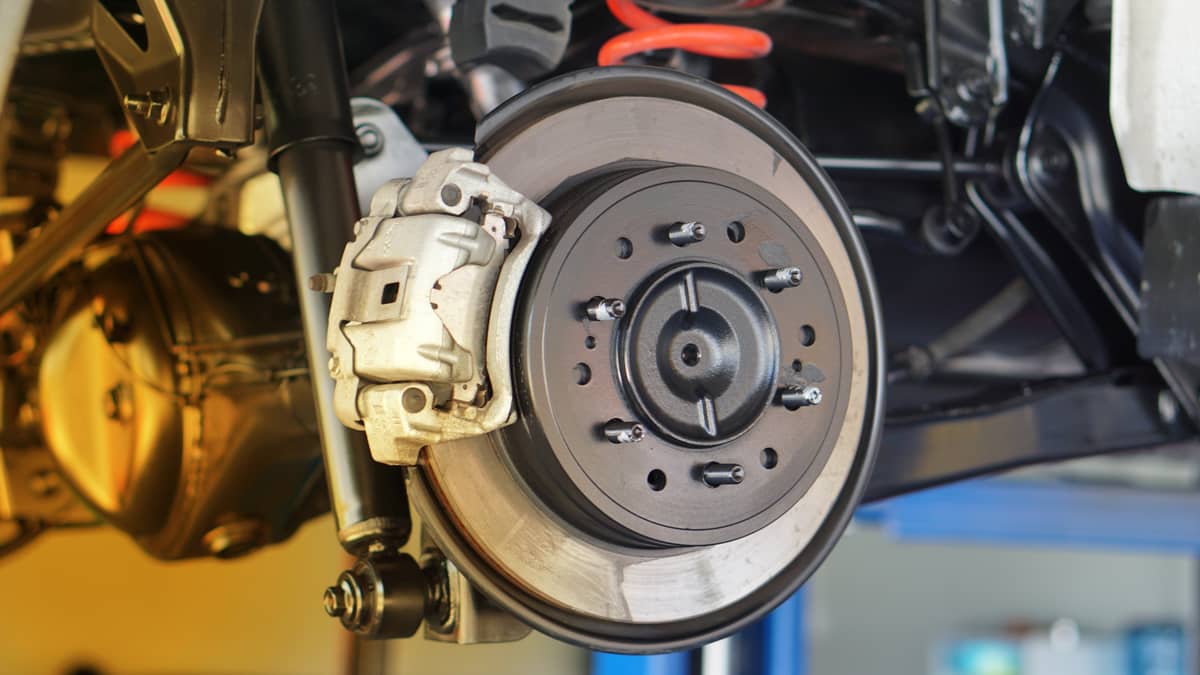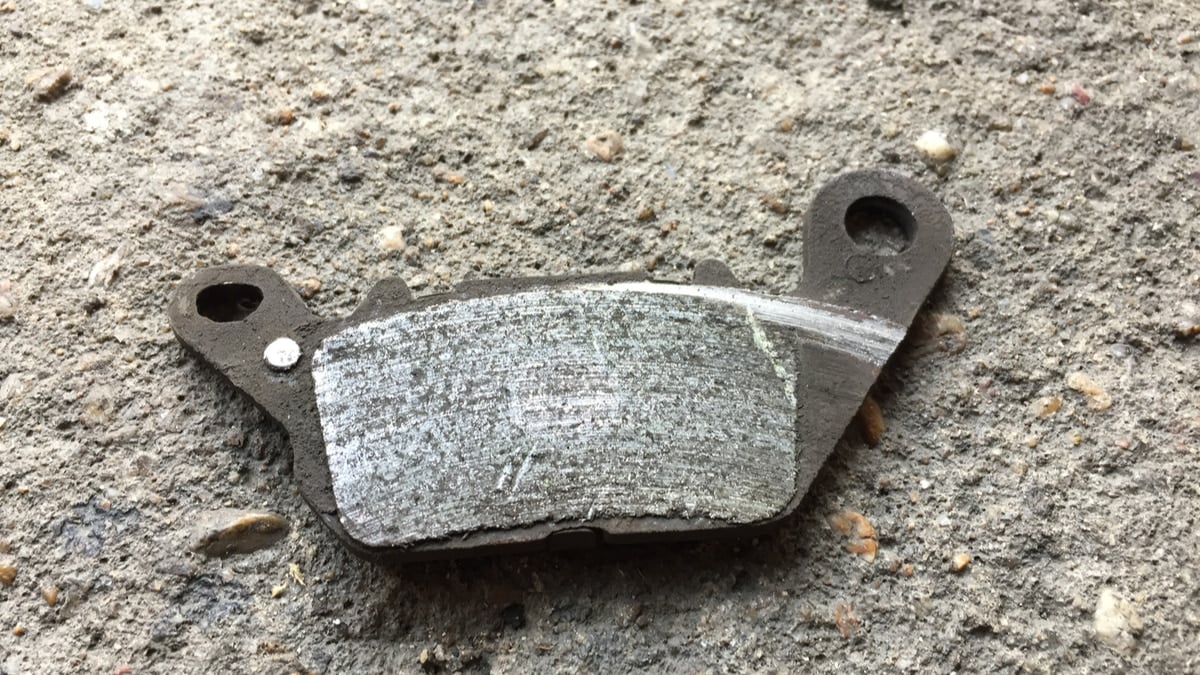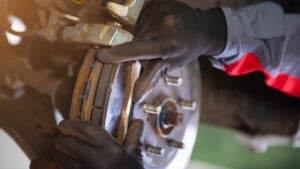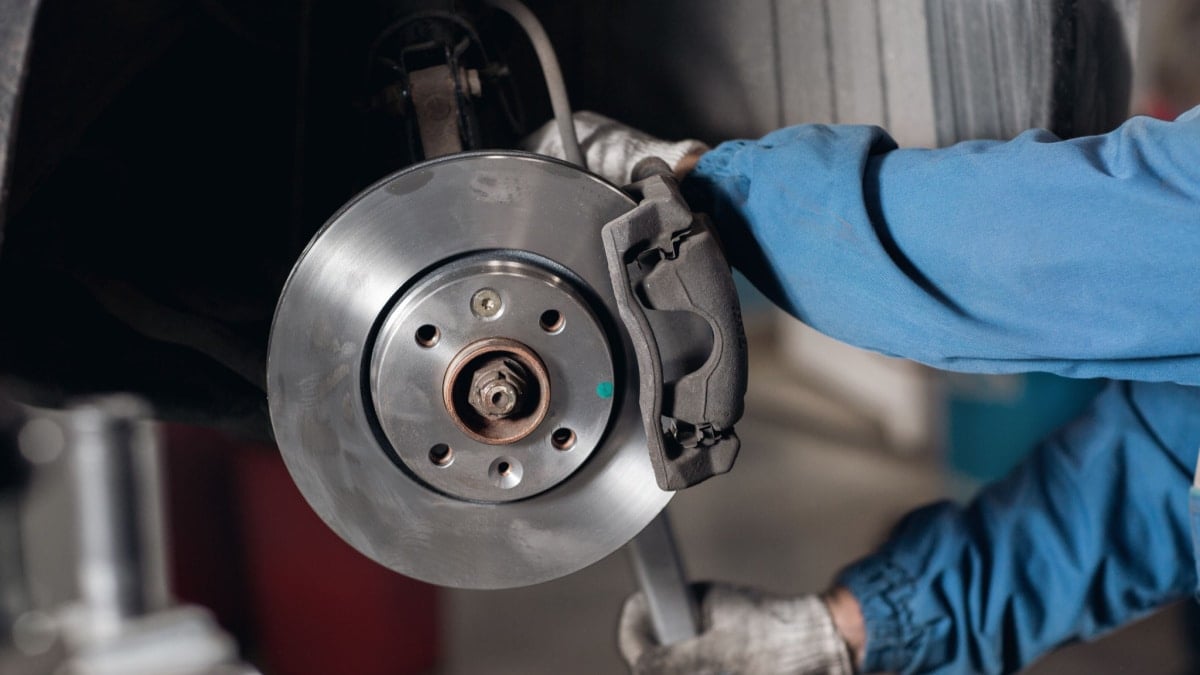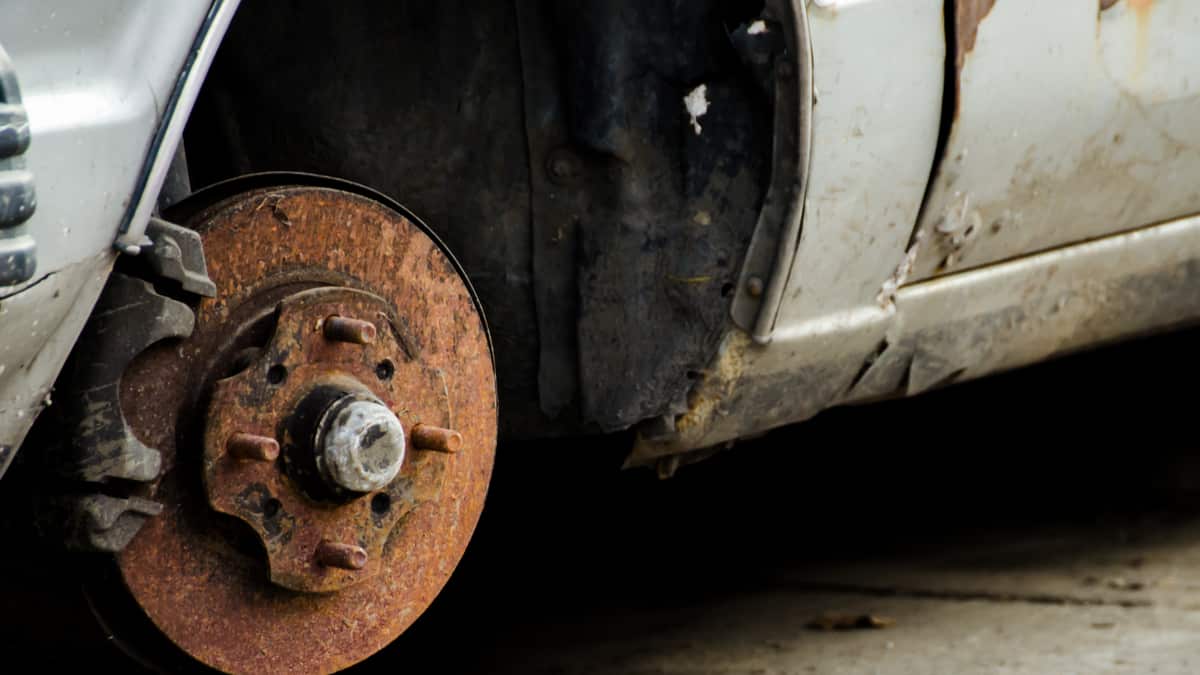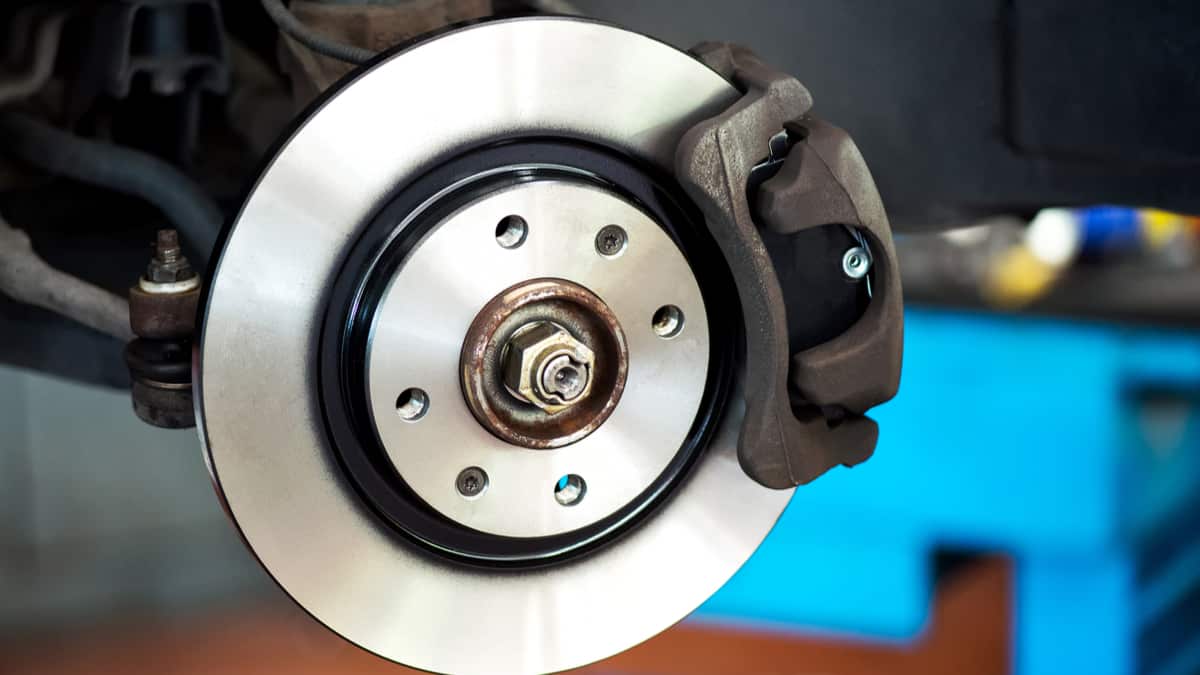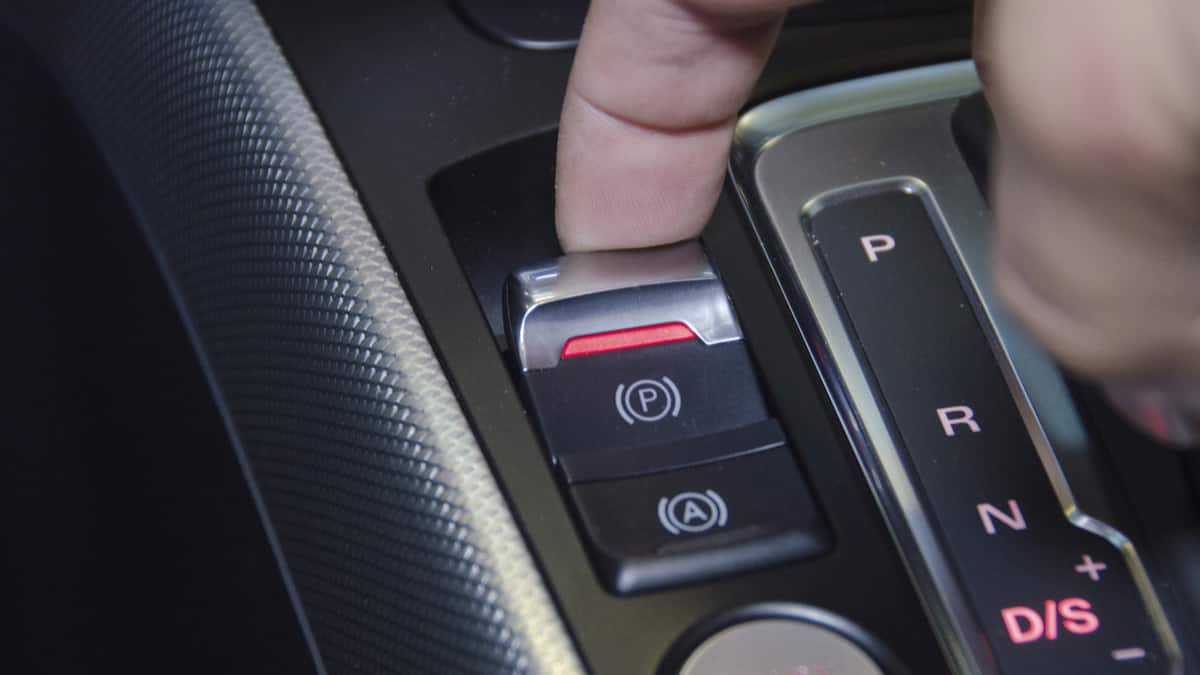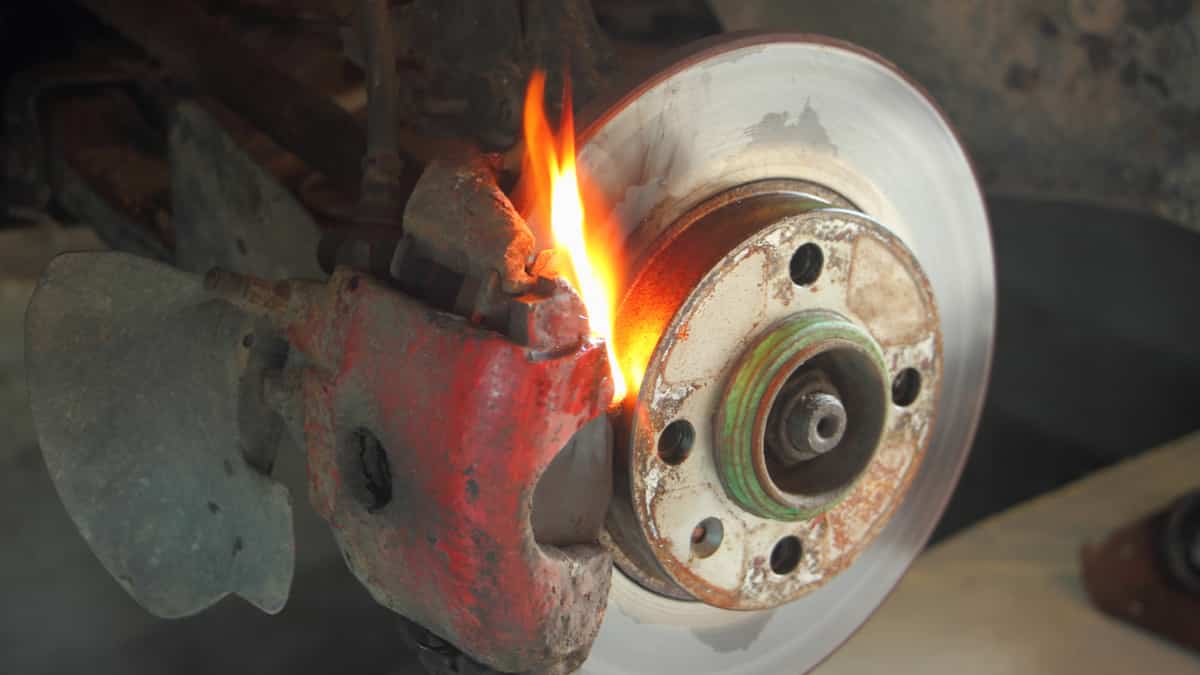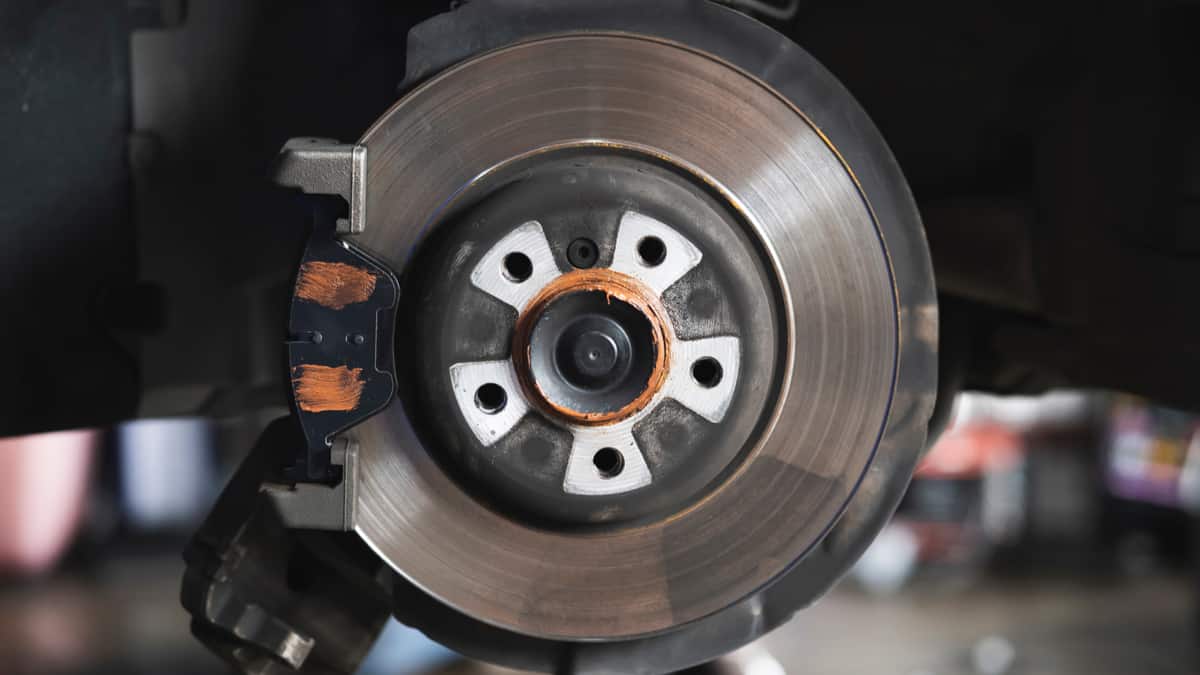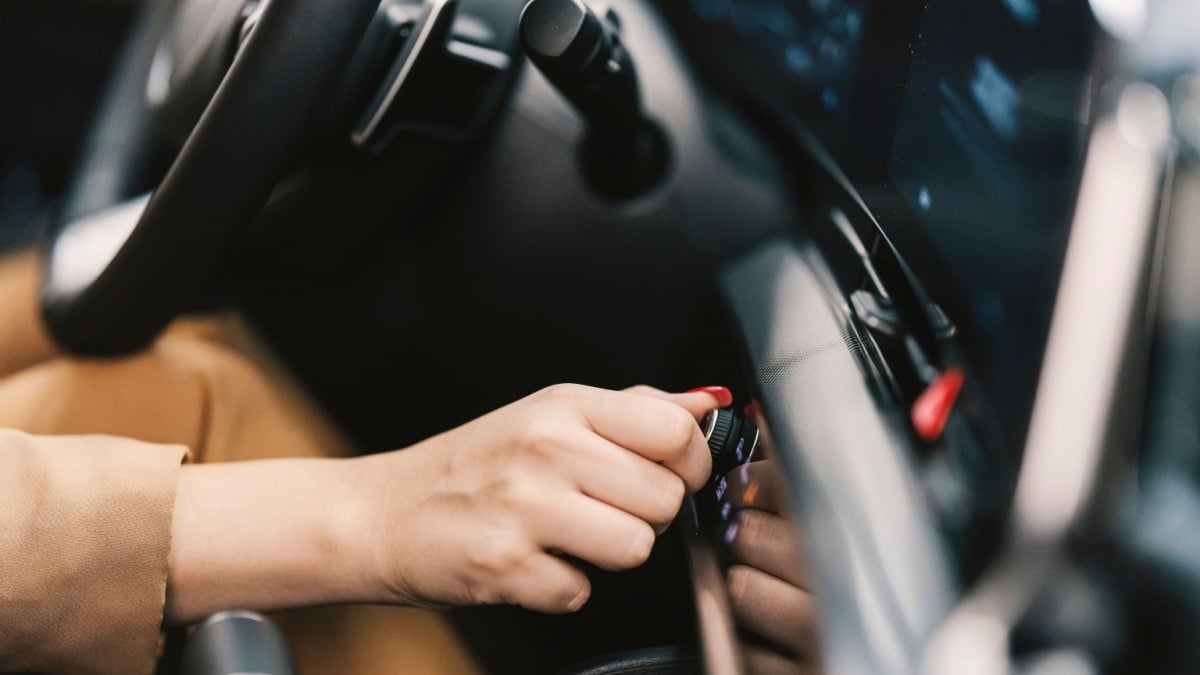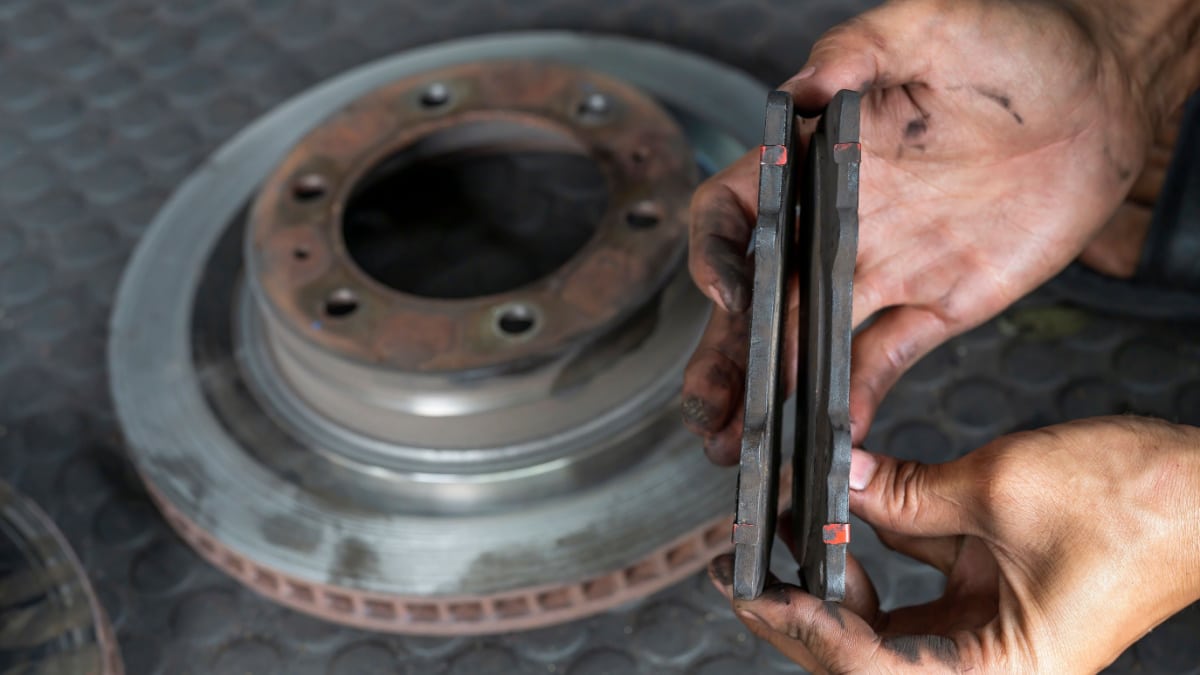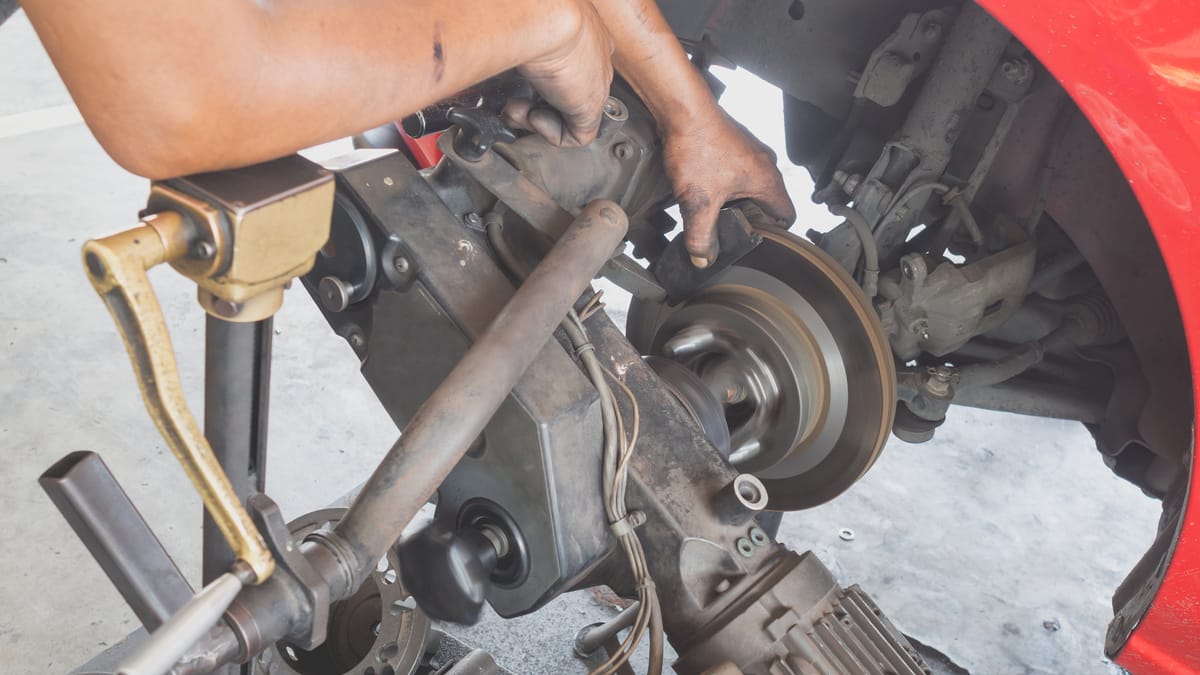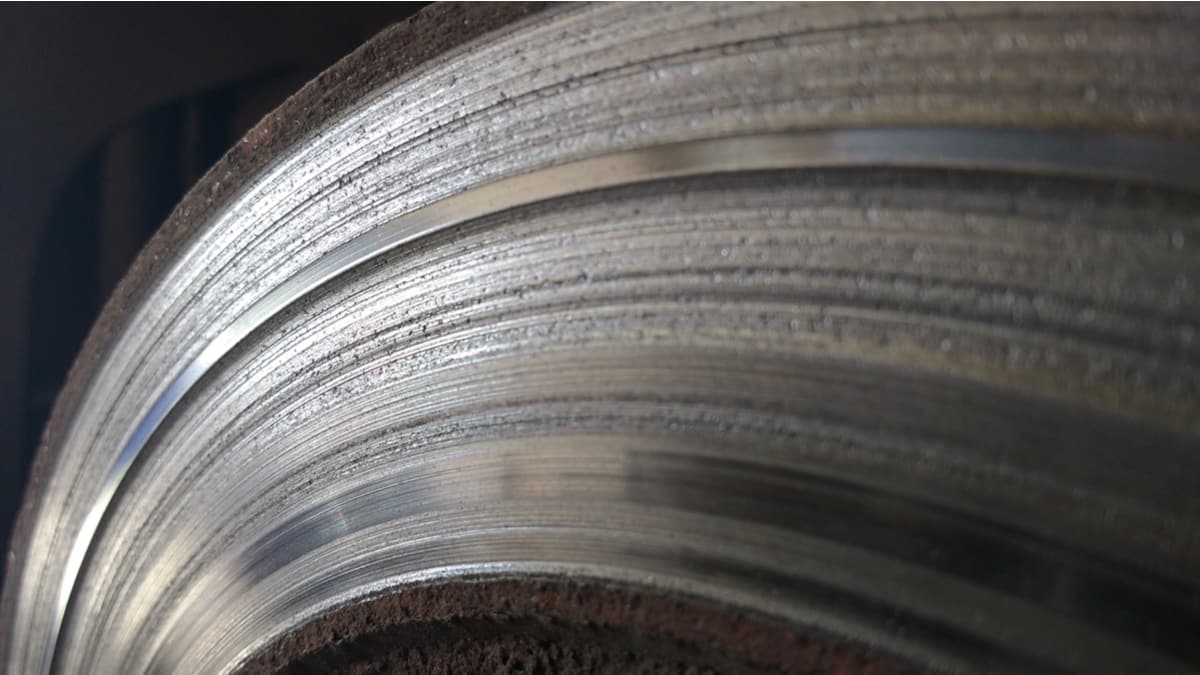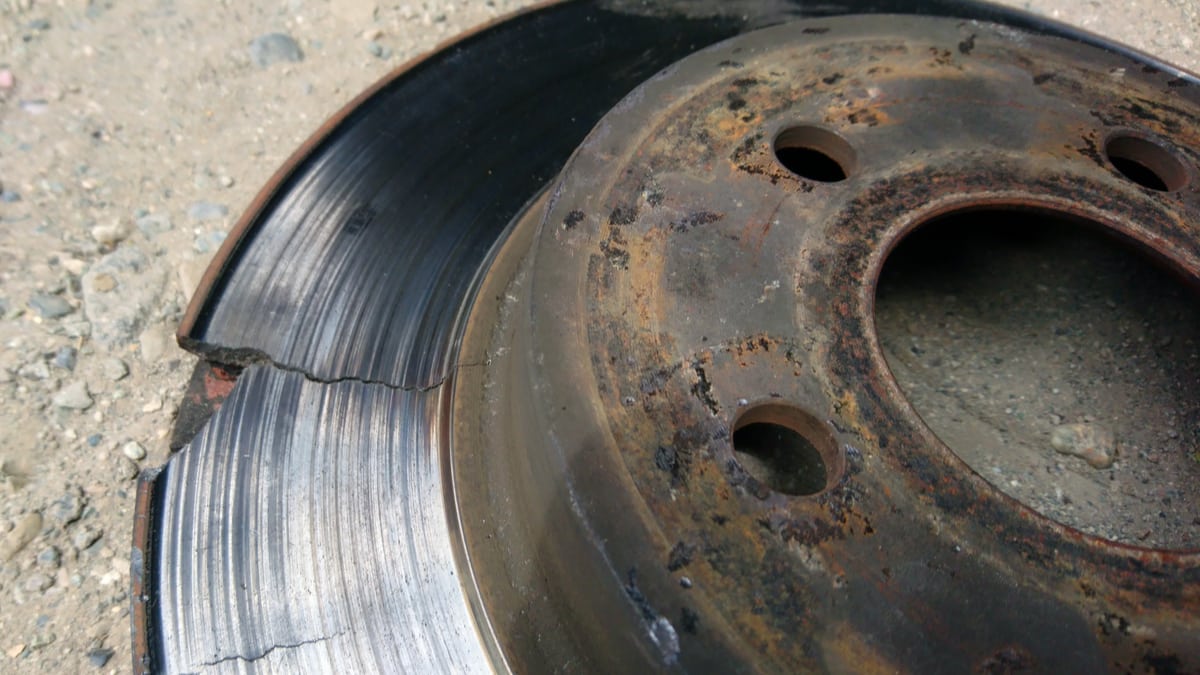It’s not abnormal to hear old brakes squealing, especially as they are wearing out. However, no one wants to hear new brakes squeak. This sound can often cause alarm and make you wonder if the vehicle is safe to drive.
In this guide, we look at the normal and abnormal reasons why the new brakes might be squeaking. We also examine other sounds or symptoms that might be occurring and show you how to fix the problem.
Causes of Squeaking New Brakes
The most common reasons why your new brakes are squeaking are excessive moisture, increased heat, or a normal break-in period. You may have also installed low-quality brake pads that are causing the noise. However, a stuck caliper or worn-out rotors can also be to blame.
Here is a more detailed list of what could cause your brakes to squeak after new brake pads or rotors:
1. Moisture
Any type of moisture can build up on the brake pads and rotors. If there has been rain, snow or ice recently, the brake pads might just need to dry out.
Even overnight condensation can accumulate on the metal parts to create surface rust. Thankfully, a few times of braking should resolve the issue.
2. Break-In
If you’ve changed the brake pads yourself, you need to allow for a break-in period. While placement is imperative to ensuring the pads are coming in contact with the rotors perfectly, you may also need to drive a few minutes.
The break-in is even more important if you change the rotors at the same time. To accelerate the process, drive in an empty parking lot and brake slowly over and over again. Don’t jam on the brakes, but focus on gentle, slow stops.
RELATED: Ceramic vs Organic Brake Pads (Which is Better?)
3. Heat
When new pads are installed, you are ready to push your car to its limits, but you shouldn’t. Right after a brake pad change is not the time to start towing heavy loads or climbing mountains.
Additionally, riding the brake can cause too much pressure on the pads which can lead to excessive temperatures. In any of these situations, the brake pads become too hot and squeaking is bound to occur. During this time, the brakes are also less effective, so be careful.
4. Low-quality Brake Pads
If you choose a new brake pad set with high metal content, you might notice some squeaking. The majority of brake pads come with some sort of metal mixture, including graphite, copper, steel and iron. Depending on the composition, you might notice squealing as the pad touches the rotor.
However, there are other brake pad materials that might squeak less. You can look at organic pads that contain rubber, glass or resins, but the best option might be ceramic brake pads.
5. Stuck Caliper
Your brake pads move because of the caliper pins that need to contract and release the pads from the rotors. If one caliper pin sticks, the pad could get jammed into the rotor at an angle, which would lead to squeaking noises.
If you’ve changed the pads without noticing the problem, you haven’t resolved anything. Additionally, if both of the caliper pins stick, you might also notice a burning smell.
RELATED: Brake Caliper Sticking (Causes & How to Prevent it)
6. Worn Rotors
You may have replaced the pads but neglected to change the rotors. If the rotors are worn, there are still going to be some issues, including squeaking sounds when the rotors can’t function properly with the pads.
With bad rotors, it becomes harder to stop the vehicle. It can also create a grinding sound as the metal continues to wear down. Plus, you are going to wear out brake pads faster if you run bad rotors.
Other Brake Issues to Watch For
Grinding
You should never hear grinding sounds right after replacing the brake pads. Because you aren’t running metal-to-metal, squeaking is much more likely to occur. The grinding sound typically comes from the pads going below the wear indicators and making metal contact.
If you hear any grinding sound after changing the brake pads, there could be an issue with the hardware. You want to have the system checked right away.
RELATED: Grinding Noise When Braking? (Here’s How To Fix it)
Pulsating
If the brake pedal starts to vibrate when you push on it, you need to look at bigger problems. It’s also possible that this symptom can combine with an illuminated brake warning light and a burning smell.
In some cases, the pulsating feeling is caused by a stuck caliper. It can also create a pulling sensation on the wheel when braking.
How to Fix New Brake Noise
1. Wear Off Moisture
The repair to the brake squeaking depends on what the problem is. If there was precipitation overnight or an excessive amount of condensation, you just need to drive a little bit to get rid of the extra moisture.
Once the brake pads have dried out, there should be no more squeaking. If the squeaking persists, you need to look at one of the other options.
2. Break-in Pads
New pads must also be broken in. If you have them professionally installed, the repair shop should break them in for you.
However, if you replace them on your own, you want to drive around slowly and continue braking until the pads are properly seated and working smoothly with the rotors. Choose a safe location to perform this task, such as an empty parking lot.
3. Cool the Pads Off
If you’ve been pushing the brakes hard, it’s possible they are just hot. You might be climbing steep inclines or towing when it happens.
In this case, the best solution is to pull over and let the brakes cool down. Reducing the heat will also improve the stopping power.
4. Swap Out Pads
If you put cheap brake pads on your vehicle, you might need to perform another replacement. Sometimes, it doesn’t pay to use the cheap pads, especially when you look at how often you might need to replace them.
Ceramic pads suffer from squeaking the least because of the lack of metal. On the other hand, they do cost more and aren’t ideal for heavy braking situations.
5. Repair Calipers
If you have a sticking caliper, the only solution is to lubricate it or replace it. Sticking calipers are also going to create a car that pulls to one side and possibly a burning smell.
Because this situation keeps the brake pad engaged with the rotor, you are going to wear through the material much more quicker. It also creates damage to the transmission, leading to premature wear.
6. Change/Resurface Rotors
If you tried to change the pads without paying attention to the needs of the rotor, you might have to do more work to rectify the situation. When new brake pads are installed with bad rotors, the pad can’t make optimal contact with the rotor surface.
Not only will more damage occur to the new brake pads, but the sound will continue until you fix it. In some cases, you will be able to resurface the rotors. However, if there’s not enough remaining space or you have a thin rotor, you will need to replace them entirely.
RELATED: Should I Resurface or Replace My Rotors? (When to Replace?)
Categories: Brakes, Troubleshooting
